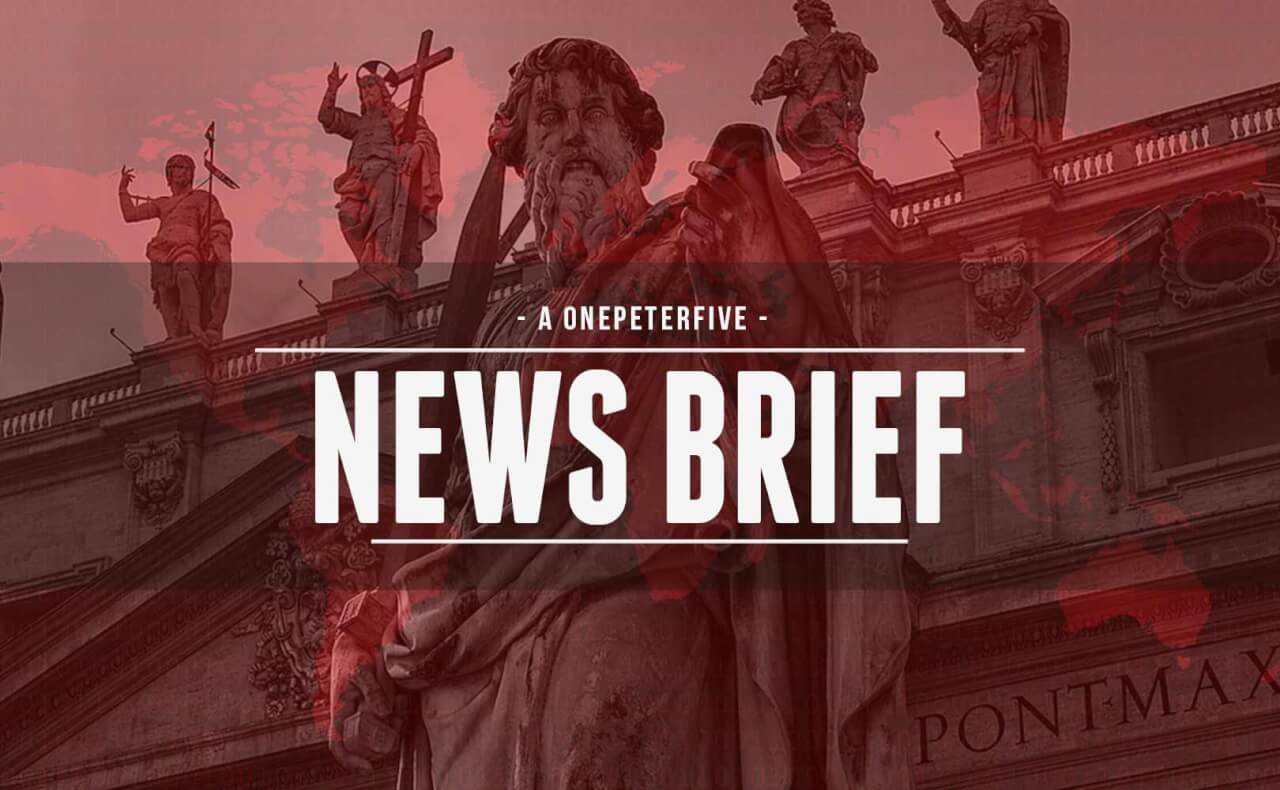In response to an invitation to participate in a National Catholic Register symposium on the Clerical Sex Abuse Summit in Rome later this month, Archbishop Carlo Maria Viganò has once again made public comments about the crisis in the Church. In his brief essay, he signals pessimism about the upcoming meeting, saying, “I am praying intensely for the success of the February summit,” but that there is “no sign of a genuine willingness to attend to the real causes of the present situation.”
Viganò details some of his own experiences in seminary in the 1960s, experiences he says were “marked by a general and very serious lack of discipline” indicative of a move away from “proper spiritual formation of candidates to the priesthood.” He states unequivocally that “those who suffer from deep-seated same-sex attraction should never be admitted to seminary.” He also observes that any seminarian, whatever his sexual orientation, must “not only strive for chastity but actually achieve it.”
“He must already be living chaste celibacy peacefully,” the archbishop writes, “and for a prolonged period of time, for if this is lacking, the seminarian and his formators cannot have the requisite confidence that he is called to the celibate life.”
The former apostolic nuncio then presents the three critical questions that cause him to doubt the likelihood of success at the summit.
First, he asks, “Why will the meeting focus exclusively on the abuse of minors?” Noting that crimes against minors are “the most horrific,” he nevertheless points to the fact that “the crises in the United States and Chile that have largely precipitated the upcoming summit have to do with abuses committed against young adults, including seminarians, not only against minors.”
“Almost nothing,” he writes, “has been said about sexual misconduct with adults, which is itself a grave abuse of pastoral authority, whether or not the relationship was ‘consensual.'”
On the issue of homosexuality, the archbishop asks why the word itself — “homosexuality” never appears in official Vatican documents anymore. Clarifying that while he does not believe that “most of those with a homosexual inclination are abusers,” it is nevertheless noteworthy that “the overwhelming majority of abuse has been inflicted on post-pubescent boys by homosexual clerics.” Not facing this fact, he says, is hypocritical and dishonest, and any attempt to address the need for “spiritual revitalization” in the clergy will fail if it continues to be ignored.
Finally, Viganò asks, “Why does Pope Francis keep and even call as his close collaborators people who are notorious homosexuals? Why has he refused to answer legitimate and sincere questions about these appointments? In doing so he has lost credibility on his real will to reform the Curia and fight the corruption.”
The archbishop, who has been living in hiding since his first public testimony implicated the pope in the coverup of former Cardinal McCarrick’s sexual abuse, once again repeats his request that Pope Francis, “tell the truth, repent, show his willingness to follow the mandate given to Peter and, once converted, to confirm his brothers (Luke 22:32).”
The sex abuse summit will take place in Rome from February 21-25. All of the heads of the bishops’ conferences from around the globe, along with the leaders of the Eastern Catholic churches, have been invited to attend.
The full Viganò symposium piece is available here.


